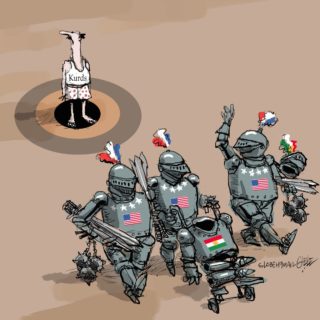Every aspect of the North American free-trade agreement will be on the negotiating table, and any final agreement should contain an automatic measure to reopen the deal later to address further issues, Donald Trump’s nominee for commerce secretary said on Wednesday.
Billionaire turnaround specialist Wilbur Ross told a Senate confirmation hearing that reopening the 1994 trade deal with Canada and Mexico to make it more favourable to U.S. manufacturers will be one the Trump administration’s first acts.
“NAFTA logically is the first thing for us to deal with,” Mr. Ross told the Senate Commerce, Science and Transportation Committee. “We ought to solidify relationships in the best way we can in our territory before we go off to other jurisdictions.”
Mr. Ross, who has been put in charge of all U.S. trade policy, said the NAFTA talks will be wide-open and that a final deal should include a sunset clause to allow the agreement to be reviewed and renegotiated within a set number of years.
“All aspects of NAFTA will be put on the table … but you don’t have a deal until you have a deal on everything,” he said. “There should be systematic re-openings of trade agreements after a few years period because it is hard to anticipate the ingenuity some of these folks have to get around the intent of the agreement.”
He said Mr. Trump has already softened up Canada and Mexico to make trade concessions with his tough talk of a 35-per-cent border tax, and that the protectionist rhetoric has driven down the value of the Canadian and Mexican currencies against the U.S. dollar.
“The president-elect has done a wonderful job of preconditioning other countries [with] whom we will be negotiating that change is coming,” Mr. Ross testified. “The peso didn’t go down 35 per cent by accident. Even the Canadian dollar has gotten somewhat weaker – also not an accident. He has done some of the work that we need to do in order to get better trade deals.”
Mr. Ross, a personal friend of the incoming president, did not say what concessions the United States expects from Canada, but he was blunt in his criticism of Mexico’s cheap labour and poor environmental standards.
Canada has been told NAFTA’s tripartite dispute panels and its rules of origin, which govern how much content from outside NAFTA a product can contain and still qualify to be shipped duty-free, are priorities in the upcoming talks.
Mr. Ross has argued that Mexican companies are putting auto parts from China into cars that are sold in the U.S. market. He also singled out low wages that led U.S. manufacturers to flock to Mexico, which unlike Canada, now has a large trade surplus with the United States.
“The minimum wage in Mexico has rarely changed in pesos for quite a few years, and the peso has depreciated quite a lot against the dollar, so on a purchasing power basis, the average Mexican worker is far worse off than he or she was five or 10 years ago. That was not the original intent of NAFTA,” he said. “If I am confirmed, that will be a very serious topic for consideration.”
Prime Minister Justin Trudeau was asked on Wednesday about Canada’s response to what the United States will seek in the NAFTA negotiations, but pointed out it is two-way street.
“We concede the point that, yes, millions of good, middle-class jobs in Canada depend on trade with the United States, but we highlight the fact that there are millions of good, middle-class jobs in the United States that very much depend on an open, strong trade relationship with Canada,” he told reporters in Sherbrooke, Que.
Mr. Ross said the president-elect’s threat of a border tax is a negotiating tactic, and indicated that it would be applied only to countries known for unfair trade practices. He pointed as an example to China, which has high import tariffs and other non-tariff barriers, making it difficult for U.S. firms to compete fairly.
“I think we should provide access to our market to those countries that play fair and play by the rules and gives everybody a fair chance to compete,” he said. “Those who do not should not get away with it. They should be punished and severely.”
Mr. Ross said that, working with Robert Lighthizer as U.S. trade representative and new White House trade adviser Peter Navarro, he will seek to reduce China’s barriers to commerce.
Mr. Ross said the Trump administration plans to cut corporate tax and business regulations to lure more foreign companies to the United States. He said the U.S. economy could achieve about 3-per-cent growth by reducing its trade deficit, expanding domestic oil and gas production and rebuilding crumbling infrastructure.
ROBERT FIFE – OTTAWA BUREAU CHIEF
OTTAWA — The Globe and Mail
Published Wednesday, Jan. 18, 2017 11:28AM EST
Last updated Thursday, Jan. 19, 2017 8:25AM EST

